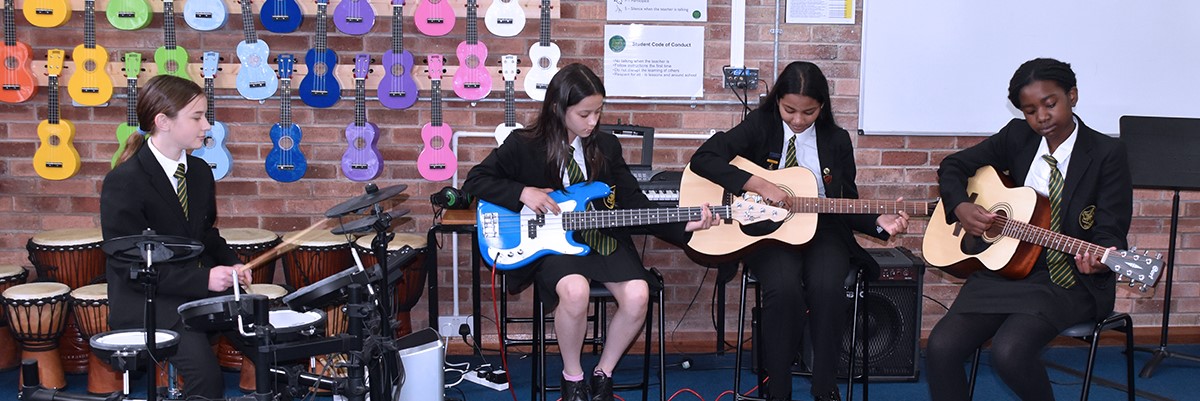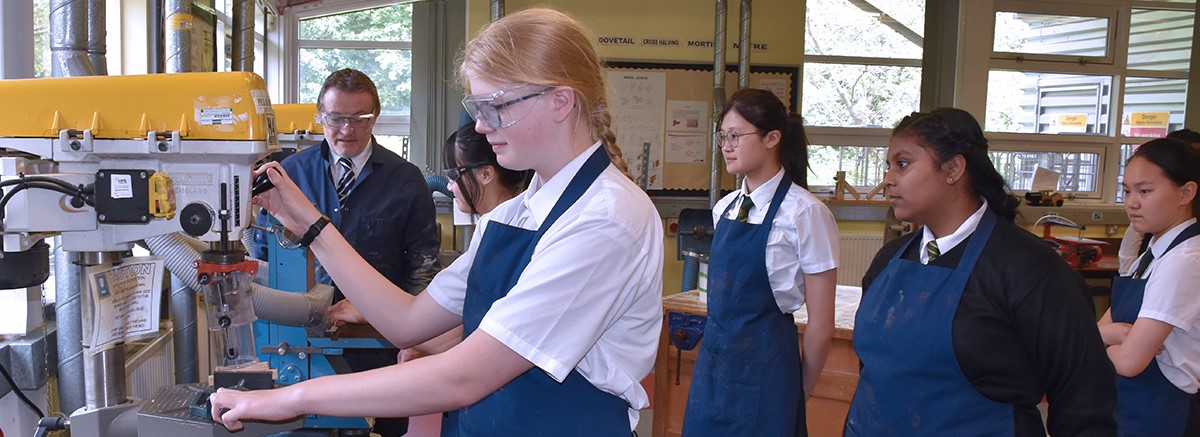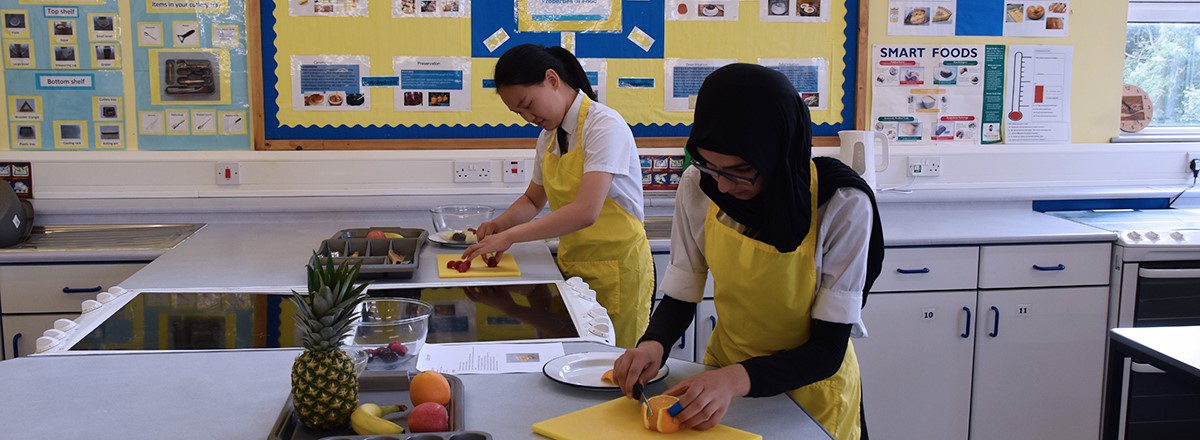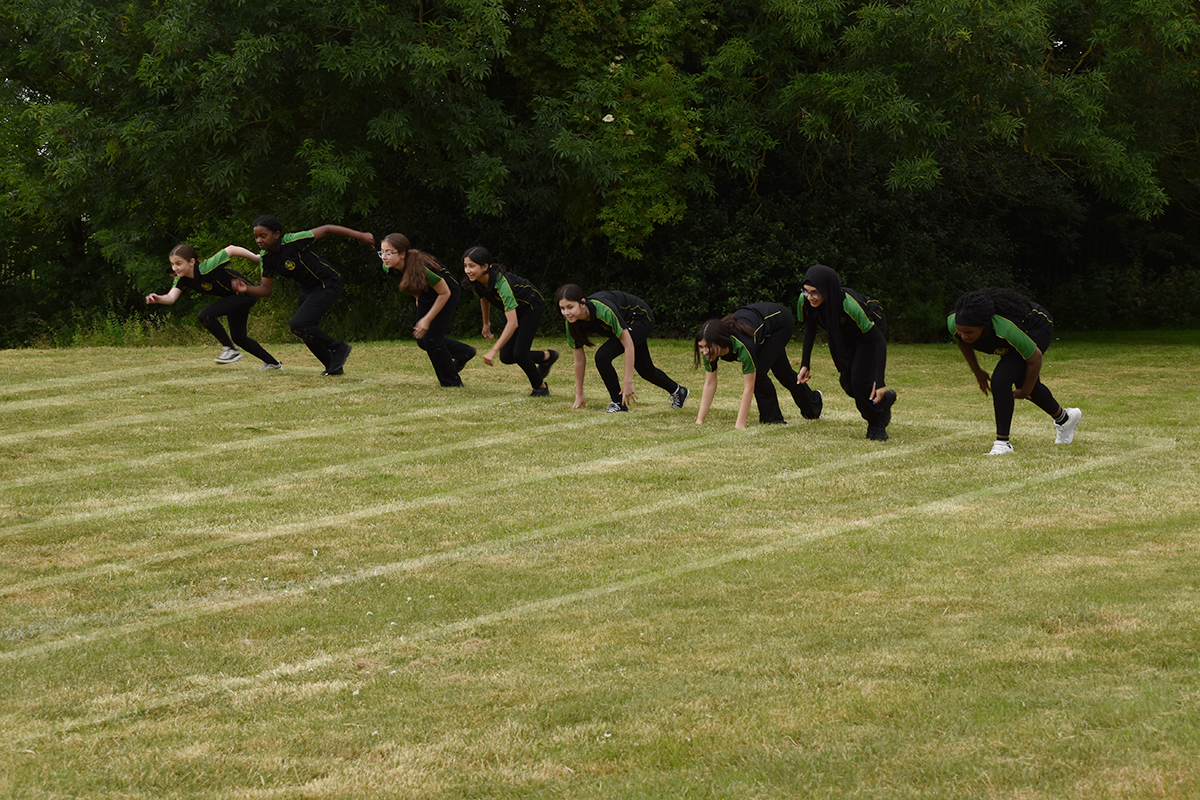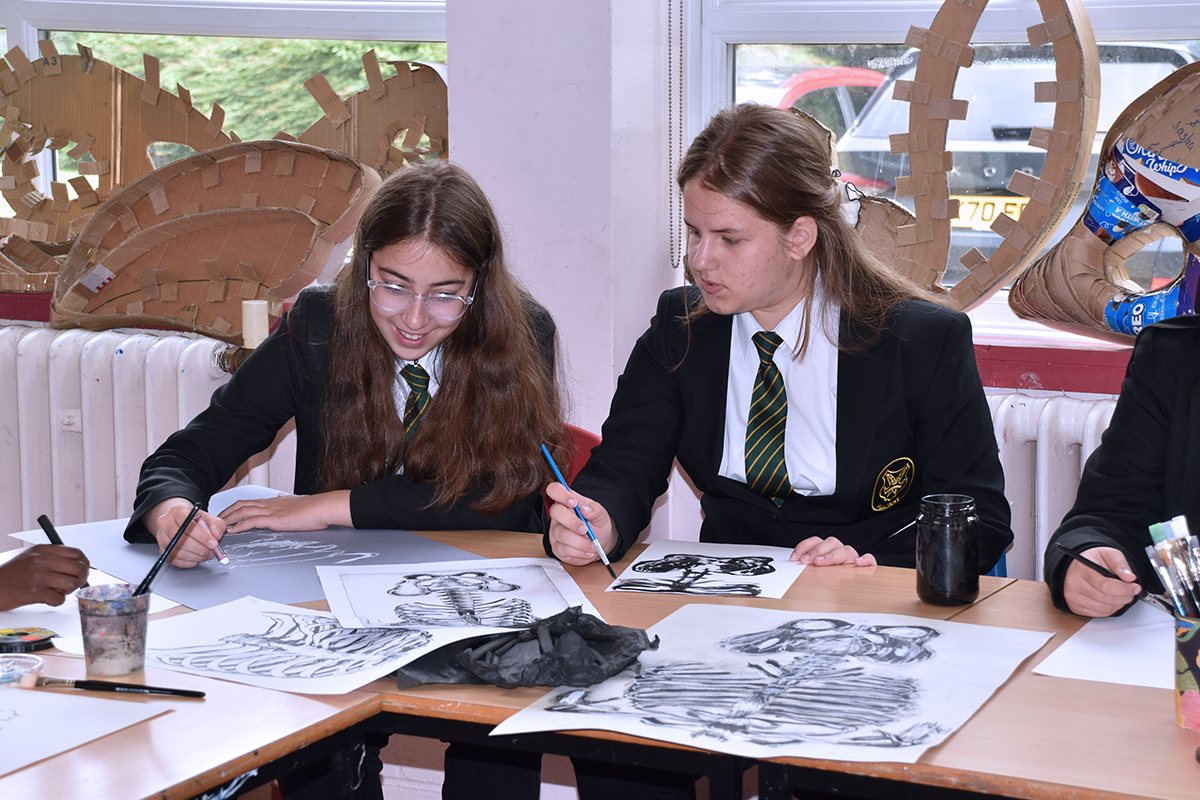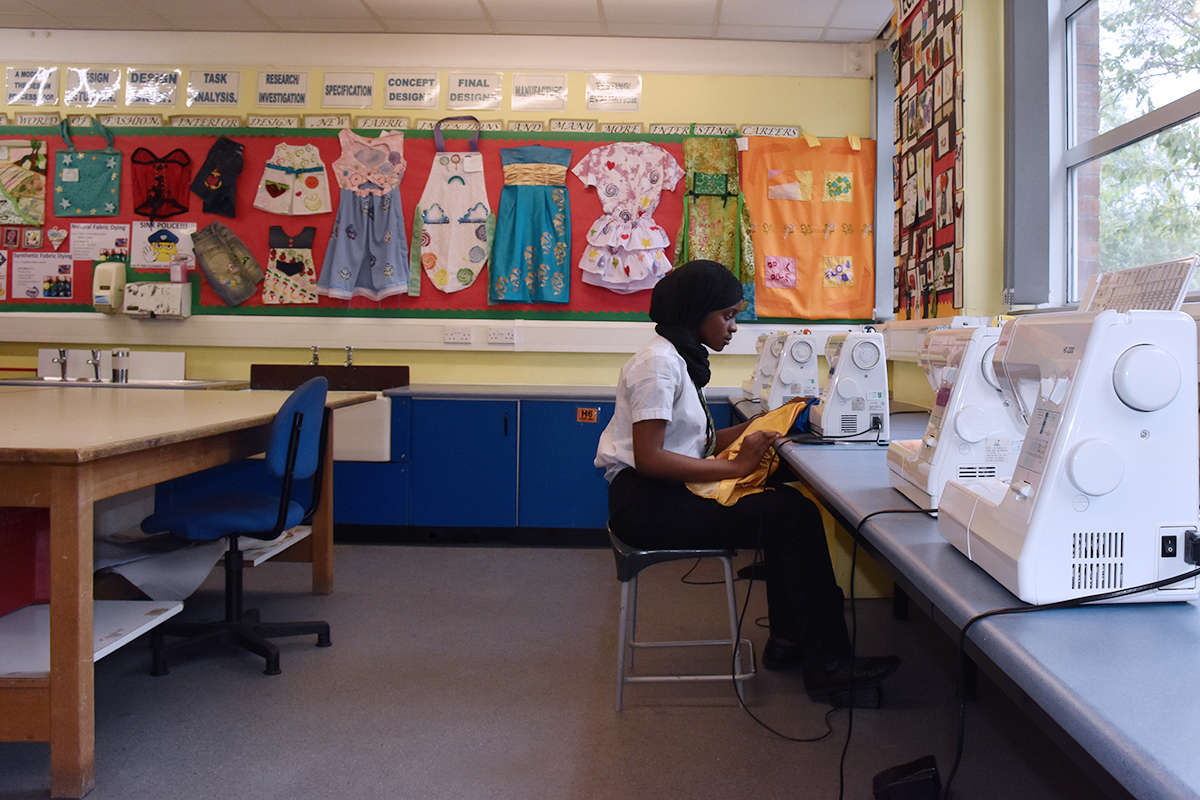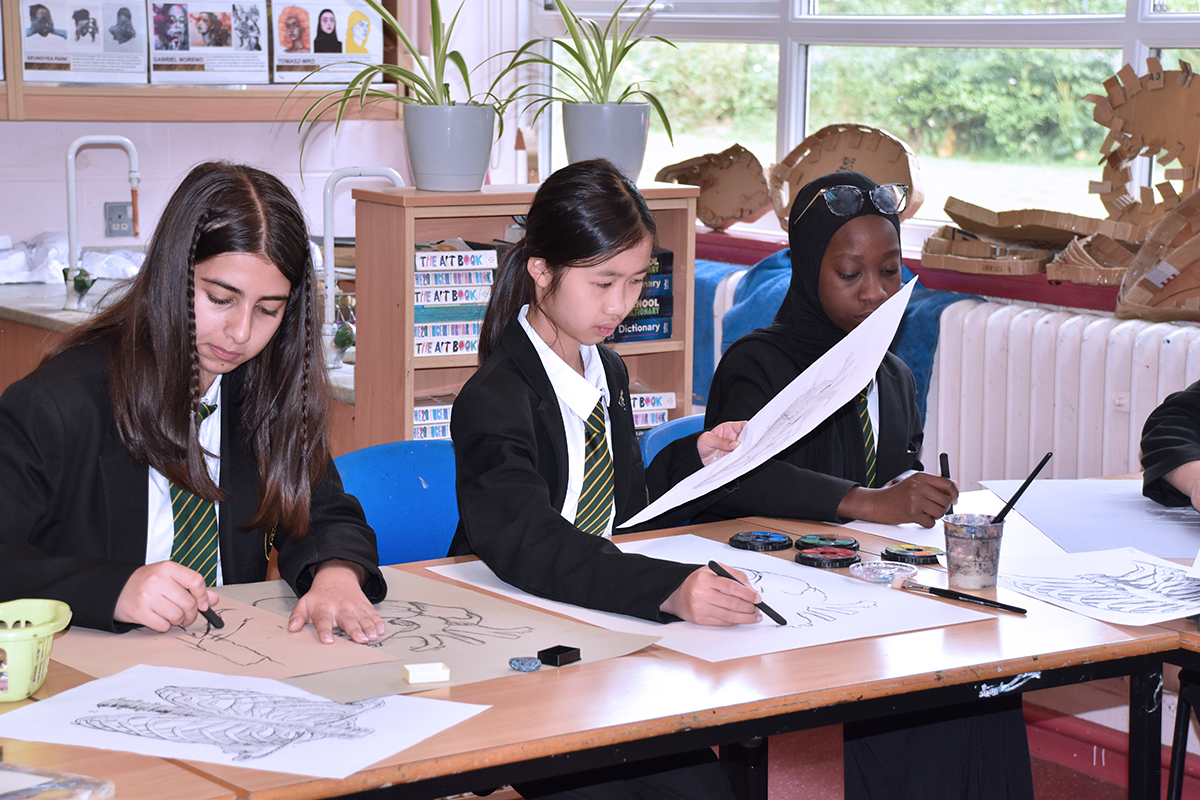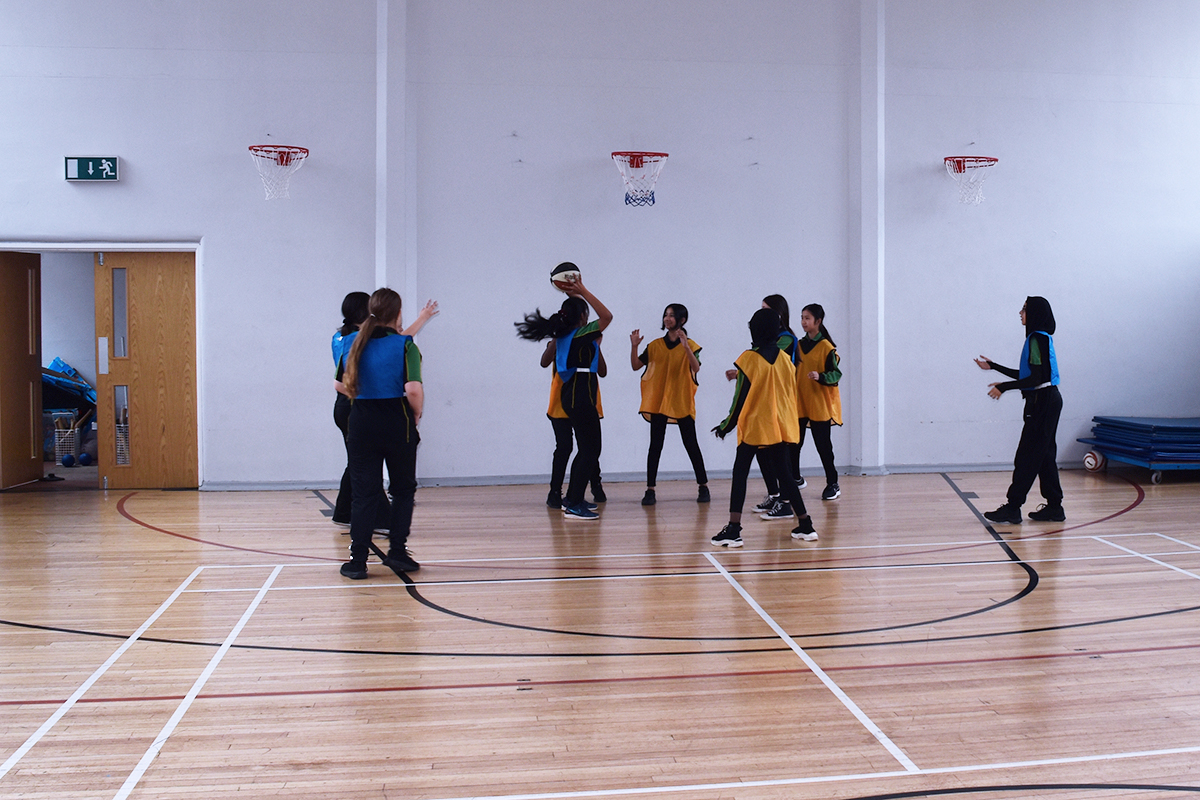Geography
KEY STAGE 3 CURRICULUM
Key Stage 3 Geography Overview
We provide at Hillcrest School a high-quality Geography education which inspires in pupils a curiosity and fascination about the world and its people that will remain with them for the rest of their lives. Our curriculum aims to equip pupils with knowledge about diverse places, people, resources and natural and human environments, together with a deep understanding of the Earth’s key physical and human processes. As pupils progress, their growing knowledge about the world should help them to deepen their understanding of the interaction between physical and human processes, and of the formation and use of landscapes and environments. Geographical knowledge provides the tools and approaches that explain how the Earth’s features at different scales are shaped, interconnected and change over time.
Aims
Our Curriculum for Geography aims to ensure that all pupils: develop contextual knowledge of the location of places, seas and oceans including defining their physical and human characteristics; understand the processes that give rise to key physical and human geographical features of the world, how these are interdependent and how they bring about spatial variation and change over time; acquire geographical skills needed to collect, analyse and communicate with a range of data gathered through fieldwork experiences that deepen their understanding of geographical processes; interpret a range of sources of geographical information, including maps, diagrams, globes, aerial photographs and Geographical Information Systems (GIS); communicate geographical information in a variety of ways including through maps and writing at length. A wide range of geographical skills and place knowledge are integrated with the topics throughout the curriculum. It also aims to prepare students with a firm foundation for the step up to GCSE geography.
Year 7
Term 1 -Welcome to Geography
1A: What is Geography?
In this topic, students will learn what Geography is all about and will start to develop a range of geographical skills. Students will learn how to describe locations and how to use maps. They will also learn about the world, including continents and countries, as well as some background to the geography of the United Kingdom.
1B: Plastic pollution
This topic focuses on the challenges that we face regarding the use of plastic and its disposal. Students will learn what plastic is and how it is used, the damage that it can cause, and what we can do about it. They will look at what individuals can do, and then will complete an investigation into the use of plastic in school. Skills developed include use of atlases, basic fieldwork skills, and analysis of data.
Term 2 -Disaster Master
2A: Violent volcanoes
The topic starts with an overview of natural hazards, then students learn about the structure of the Earth and plate tectonics. This leads to students learning about volcanoes, including where they occur, the hazards that they produce, and what we can do about them. Towards the end of the topic, students will draw together what they have learned to complete a decision-making exercise. This will involve working together in teams to decide how to respond to an eruption of a volcano in Montserrat with the aim of protecting as many people as possible.
2B: Wild weather
In this topic, students will study the weather. They will learn about various types of weather and will explain the weather of the UK. Students will gain an understanding about how we measure the weather and will have the opportunity to create instruments to measure weather themselves. They will then learn about tropical storms and will study a recent hurricane to learn about the impacts that they have.
Term 3 -Globalisation
3A: Migration
Students will be introduced to migration and various reasons why people migrate. They will develop new map skills through investigating migration within the class. They will then study how migration
has influenced Birmingham and how the UK’s policy to migration is changing. Finally, they will learn about refugees and how the media reports about migration.
3B: Tourism
In the final topic in Year 7, students will learn about what tourism is and how it can create a range of opportunities and challenges. Students will learn about Kenya and the impacts that tourism is having there. They will then learn about how tourism can be made less damaging through ecotourism. Finally, they will learn about tourism in the UK. During the topic, they will apply a range of skills developed throughout the year in designing a tourist destination and through the creation of an advert to promote tourism.
Year 8
Term 1 -Climate Change
1A: Causes of change
In this topic, students will learn about climate of the Earth and how the greenhouse effect operates to keep the climate warm. They will then learn about how climate can change naturally, before learning about how the climate has changed during the past in the Little Ice Age and towards the end of the last major ice age. Following this, they will then learn about how humans can affect the climate and how we can analyse our impact.
1B: What can I do?
This topic explores what we can do about climate change. It starts with an overview of the impacts of climate change to help students to gain an understanding about why we need to act. Following this, students will learn about what can be done, both at government level, and as individuals. Students will apply their understanding to explain how Bangladesh is being affected by climate change. Finally, students will further develop communication skills as they learn how to communicate about climate change effectively.
Term 2 -Resources and Conflicts
2A: What are resources?
This topic begins with an overview of different resources and why they are important. The topic then moves on to cover food, water, and energy in more detail, including where they come from and some of the challenges relating to them. Towards the end of the topic, students will learn about resources in the Middle East and then will finally learn about how we can use resources more sustainably.
2B: Conflict over resources
In this topic, students will be introduced to various types of conflict and how conflict can be caused. They will then make links to geography, learning about how conflict can have an impact on
geography, and in turn, how geography can have an impact on conflict. They will gain a better understanding of wider issues associated with conflict such as development and migration. Finally, they will apply their learning to better understand the ongoing conflicts, such as Russia and Ukraine, and in the Middle East.
Term 3 -Changing Birmingham
3A: Birmingham past and present
The penultimate topic of Year 8 focuses on how Birmingham has developed. Students will learn more about the city, developing an understanding of how it has changed from when early settlers first lived here, through the Industrial Revolution, and through to the present day. They will then learn more about what the city is like now, including the many opportunities that the city provides, as well as some of the ongoing challenges faced here. Finally, they will study what is being done to regenerate the city.
3B: Birmingham’s future
In the final topic in Year 8, students will learn more about the plans for Birmingham and how it may change in the future. They will learn about how the city may develop to overcome a range of challenges, including how it could become more sustainable and how traffic issues could be resolved. They will apply their learning in a decision-making exercise where they will take on the role of city planners tasked with planning and justifying improvements for the city. Finally, students will learn about the Commonwealth Games and how this will affect Birmingham now and in the future.
Year 9
Term 1 - Ecosystems
1A: What is an ecosystem?
Students will be introduced to the concept of ecosystems, including what they are, the location of major ecosystems, and how we can understand them. They will gain a greater understanding of the UK’s natural ecosystem and how it has changed and will be able to explain how we can better manage ecosystems to preserve them. Students will also have the opportunity to take part in fieldwork, investigating a local ecosystem.
1B: Coastal ecosystems
Following on from the previous topic, students will further develop their understanding of ecosystems through the study of coastal ecosystems. Students will learn about various features of the coast such as waves and tides, the formation of sand dune ecosystems, how plants and animals are adapted to the coast, how human activity poses a threat to the coast, and strategies that can be used to reduce these threats.
Term 2 Water on the land
2A: Hydrology
In this topic, students will learn about the water cycle and rivers. They will develop an understanding of how rivers work, including the processes that happen in them and the landforms that they produce. They will further develop their map skills through studying rivers in the UK. They will then look at how we use rivers and will learn how to use Geographical Information Systems (GIS) to study rivers in more detail.
2B: Flooding
Students will apply what they have learned about rivers to understand the challenges that they can create. They will learn about flooding and how it happens, then will develop an understanding of how to analyse flooding through the use of a hydrograph. Students will have the opportunity to plan and take part in fieldwork to study a local river. Towards the end of the topic, they will learn about what can be done to protect people from rivers and will apply their knowledge to understand recent flooding in East Africa.
Term 3 Britain’s links with the world
3A: The UK and the wider world
In this topic, students will explore the UK’s changing place in the wider world. They will develop an understanding of the various international links that the UK has, including through the UN, and the EU (and how this has changed). They will also learn about land ownership in the UK and will discuss issues such as how wild spaces are managed.
3B: Synoptic topic
In this final KS3 topic, students will review their learning from across the KS3 curriculum. They will revisit key aspects of the previous topics and will also review the geographical skills that they have developed. Finally, they will apply their geographical knowledge to carry out their own detailed geographical research about the UK and a country of their own choice.
Key Stage 4 Curriculum
Eduqas A GCSE GEOGRAPHY
EBACC OPTION SUBJECT
COURSE CONTACT: MR L GREGORY - HEAD OF GEOGRAPHY
Exam Board Website: https://www.eduqas.co.uk/qualifications/geography-gcse-a/#tab_keydocuments
Course Content
Geography is the study of the earth, our place in the world, and the pressing challenges that we face. At GCSE, you will study a range of human and physical aspects of geography, as well as learning a range of skills. You will also have the opportunity to take part in both human and physical fieldwork.
Assessment Details
Paper 1: Changing Physical and Human Landscapes - 1 hour 30 minutes, 35%
- Landscapes and physical processes
- Rural-urban links
- Coastal hazards and their management
Paper 2: Environmental and development issues - 1 hour 30 minutes, 35%
- Weather, climate and ecosystems
- Development and resource issues
- Environmental challenges
Paper 3: Applied Fieldwork Enquiry - 1 hour 30 minutes, 30%
- Fieldwork methods, representation and analysis
- Using fieldwork to investigate geographical concepts
- Applying geographical concepts to the UK to make and justify decisions
Why Study This Course?
Geography is vital to our understanding of the world around us. Through geography, we study many of the greatest challenges that we face in the future, including climate change, conflict over resources, crowded cities, natural disasters, deforestation, and a wide range of over issues. Not only do we aim to understand the problems, we also try to find solutions that will help us to meet the needs of the future as well as the needs of today.
Geography is an excellent choice for employment. A few examples of career options are shown below.
|
Volcanologist |
Transport planner |
Environmental consultant |
|
Recycling officer |
Architect |
Town planner |
|
Cartographer (working with maps) |
International aid worker |
Travel writer |
|
Disaster response |
Geographical information systems |
Holiday companies |
|
Resource management |
Conservation |
Teaching |
Geography Reading List
Geography- Careers in the Curriculum Priorities
In Geography, we intend for our students to gain competence in a range of geographical and transferable skills that will boost their employability and prepare them for a broad range of careers.
- Where relevant, explicit links are made to a range of careers that use geographical skills, for example, careers involving GIS, decision making, mapping, and data analysis. These links will better enable students to understand a range of career opportunities and the value of Geography in these careers.
- Careers links made in lessons will enable students to make an informed choice when it comes to choosing their options as they progress through their education.
- Impact of careers provision will be measured through student feedback.

